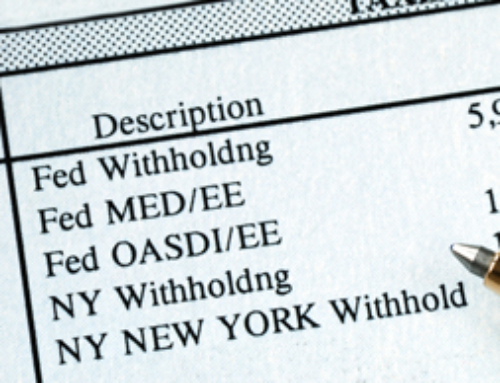
My brother David has two tall, gorgeous, smart sons. They’re both away at college. When David told me the cost of their tuitions, I nearly choked.
Their college education costs more than twice what I paid for my home!
Whew! Raising children is an expensive proposition. The Tax Code provides some help. I’ve compiled a list of child-friendly tax credits, all of which have income limits.
Explore these and see which ones will work for you:
Earned Income Tax Credit (EITC)—Form W-5, IRS Pub. 596
The EITC is a tax credit for people who work and earn low wages. In 2010, the maximum credit is $5,666 (with three or more qualifying children); with one qualifying child, the credit is worth up to $3,050 (and you can earn up to $457 with no qualifying children). Your earned income and adjusted gross income must each meet certain limits, with less than $3,100 of investment income. The maximum advance you can get from your employer is $1,830.
Learn more at http://www.irs.gov/individuals/article/0,,id=96406,00.html.
Child Tax Credit—Form 8812, IRS Pub. 972
This credit is worth up to $1,000 per child. Although it is limited to your tax liability, the Additional Child Tax Credit makes some or all of the difference refundable.
Learn more at http://www.irs.gov/newsroom/article/0,,id=106182,00.html.
Child and Dependent Care Credit—Form 2441, IRS Pub. 503
This is a nonrefundable credit, so if you have no tax liability, you get nothing. Essentially, the tax credit is limited to $600 for two children. Both parents must work. If either is a full-time student or permanently disabled, there’s a special phantom income allocation. If you have over $3,000 in expenses per dependent, in certain cases, some expenses may be used as medical deductions. Job-related benefits may reduce the credit.
Learn more at http://www.irs.gov/taxtopics/tc602.html.
Education Credits—Form 8863, IRS Pub. 970
The American Opportunity Credit includes a refundable credit of up to $2,500. A whole host of education credits and deductions is available. You’ll find a comprehensive overview of the benefits in my recent MarketWatch column.
Overlooked and Underused Child-Friendly Tax Benefits
You have to pay certain expenses—child care, medical, education—but did you know there are ways to pay for them with pre-tax money? Using a flexible spending account (FSA) and taking advantage of employer benefits are two ways to spend tax-free money on expenses you’re paying anyway. And since using these strategies also reduces your Social Security and Medicare taxes, you can save over 40 percent of the cost. People are afraid to use these strategies for some reason—but you shouldn’t be!
Flexible Spending Accounts
Contributions to an FSA come directly from your own wages and reduce your taxable wages. You may contribute up to $5,000 toward dependent care and $5,000 toward health care, but you may have to wait for open enrollment to do this. Submit receipts to get reimbursed. Be warned: if you don’t submit receipts on time, you could lose this money.
Learn more at https://www.fsafeds.com/fsafeds/summaryofbenefits.asp.
Employer Benefits
Since you are paying these expenses anyway, consider renegotiating your wages, or your next raise, to have your employer pay them for you. Some of these benefits work for your own business; some don’t. Naturally, there are rules and limitations. You can get these benefits, tax-free:
1. Dependent care: Your boss may pay up to $5,000 of your dependent care costs.
2. Education assistance: The limit is $5,250 per employee. But there’s even a way around that. (See the Assistance over $5,250 section.)
Note: Age limits may vary. Each benefit has a different age limit for your child. The Taxpayers Advocate Service website has an overview of some benefits and age limits: http://www.eitc.irs.gov/central/childbenefit/.
Invest your time to see which of these benefits applies to you. You may be entitled to thousands of dollars!
Eva Rosenberg, EA is the publisher of TaxMama.com, where your tax questions are answered. Eva is the author of several books and ebooks, including Small Business Taxes Made Easy. Eva teaches a tax pro course at IRSExams.com.






